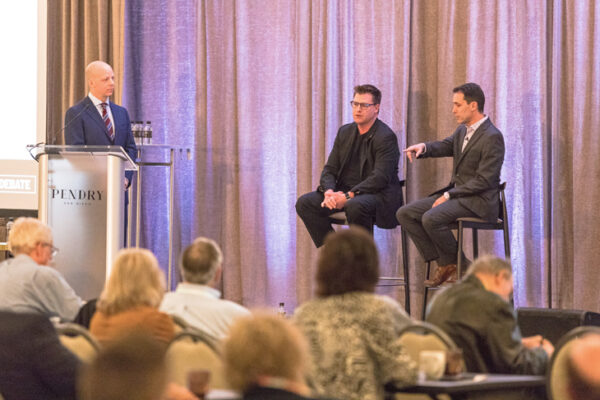Want to Retire at 50? It’s Possible. Here’s How
Do you think it’s possible to retire at 50? Most people dismiss it as a dream – something that’s possible, but not probable. You might be surprised to learn that it’s more realistic than you think to retire by 50. In fact, if you’re in your 20s, or even your early 30s, it’s downright probable. You just need to point yourself at the right trajectory for success to learn how to retire early.
If you want to retire a full decade earlier than most people, you need to achieve financial freedom. Here’s a look at what, exactly, that means and the steps you need to take to retire by 50, ready to enjoy the best years of your life.

Master Financial Independence
The definition of financial independence is having enough income from passive investments to cover your living expenses without relying on a paycheck. To be financially independent, you need to build your wealth. To retire early at 50, you need to build that wealth in a way that’ll last you for the rest of your life. For most people, their primary drivers of wealth (and financial independence) will be the following:
- Retirement accounts like a 401(k) or Roth IRA
- Independent investments, such as stocks or ETFs
- Property investments, such as rentals or REITs
- Dividend-yielding investments, such as stocks or ownership stakes.
To retire by 50, you need as many of these sources of wealth as possible. Retirement withdrawals will fund your lifestyle. Dividends will pay your bills. Property investments will fund your vacation. All these things add up to financial independence and the path to retirement.
Investing Early and Often Is the Key
The earlier you start building your wealth, the more realistic retirement at 50 becomes. Compound interest and asset appreciation are big parts of security in early retirement. For example, consider an investment of $50,000 at an annualized return of 11%. Over the course of 20 years, with no additional contributions, that $50,000 becomes $403,000. Over 25 years, it becomes $679,000!
Compound interest becomes more powerful with each passing year. And to see this powerful concept at work, try out our free investment calculator.
The beauty of starting early is that every year you contribute to an investment, the more your principal contributions will grow. If you start with $50,000 and add an additional $5,000 every year at an 11% growth rate, you’ll have $723,600 in 20 years and $1.2 million in 25!
How Much Money Do I Need to Retire at 50?
All of this adds up to one question: How much money do you need to retire at 50? It comes down to lifestyle. What do you want your annual income to be when you retire? Take that and multiply it by the number of years you think you’ll live. Here’s an example:
Tamir wants to retire at 50 on an annual income of $50,000. He thinks 85 is a reasonable age to plan for. To retire comfortably, Tamir will need $1.75 million to get him through the next 35 years of retirement.
Keep in mind, this is the bare minimum. It’s good to plan beyond the age you think you’ll live to and factor for higher expenses the older you get (healthcare, for example). It’s better to overestimate than to underestimate and outlive your investments.
This Is How to Retire by 50
Lots of people still have trouble wrapping their mind around retirement at 50. Here’s a look at how someone who’s 30 might approach the path to financial independence to retire in just 20 years:
Tamir needs $1.75 million to retire at 50; he’s 30 right now, giving him 20 years to plan. He starts by maximizing his contributions to his 401(k) and taking advantage of his company’s 4% match. Each year, his 401(k) contributions total $20,280 and have an annualized return of 9%. In 20 years, it’ll be worth just over $1 million.
Tamir also has a dividend portfolio set up to generate passive income after he retires. At 50, his holdings will generate $1,000 per month in dividend income. He also has property holdings that generate $1,200 per month in net income.
Make smart investments, hold them for 20-plus years and generate passive income. This example of financial freedom is one many people can relate to at age 50 so long as they take the time to plan, act and stay focused!
Even if you can’t retire by 50, you’ve still got options. Don’t give up and strive for financial independence. Read the next article in our series and learn how to retire by 55.
Read Next: Here’s Everything You Need to Retire at 55
[adzerk-get-ad zone="245143" size="4"]




